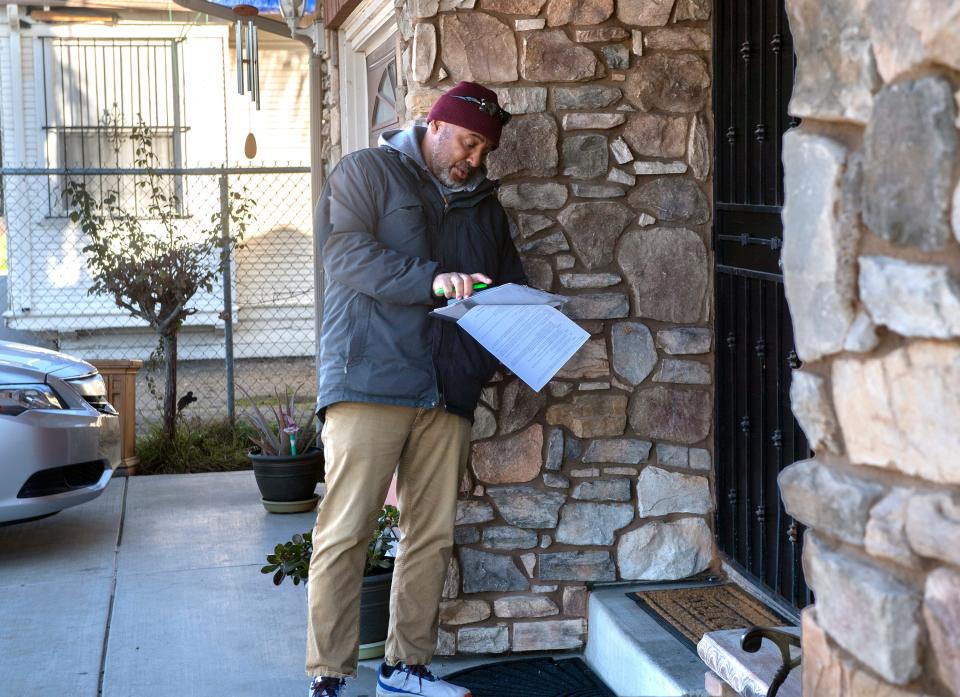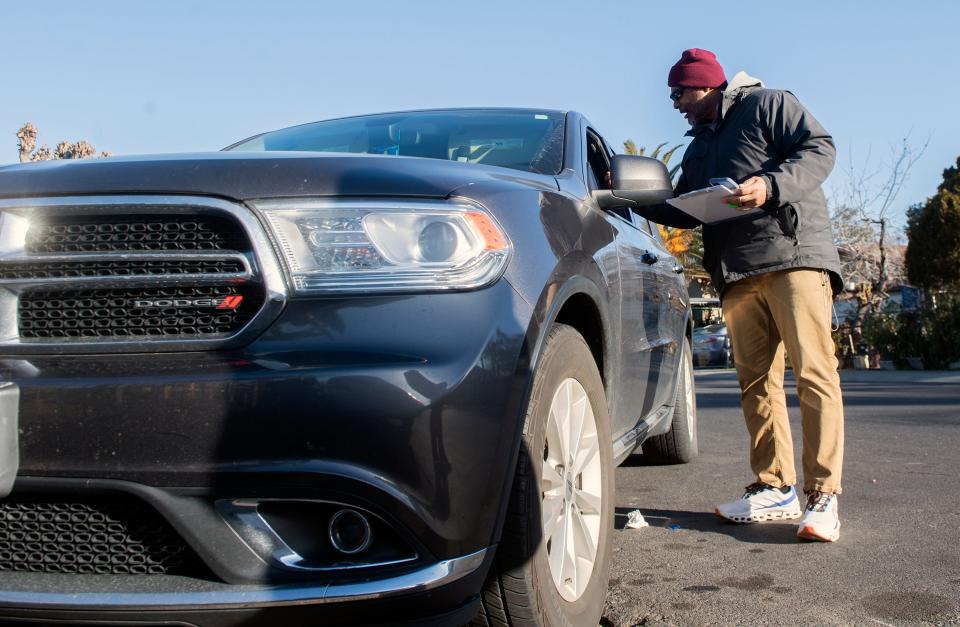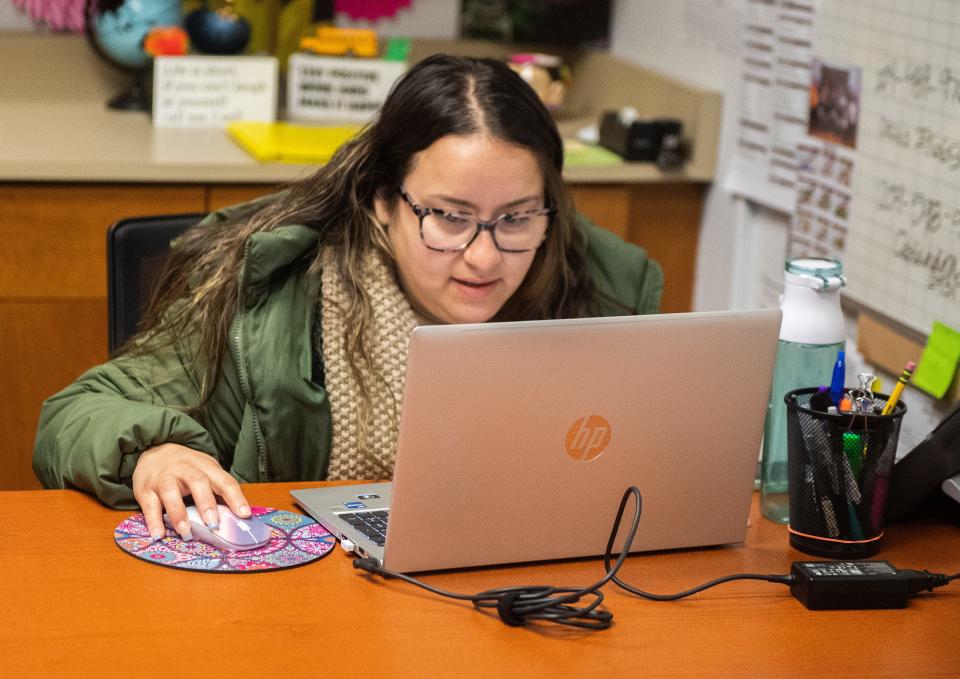How over 3,600 house visits this school year are getting Stockton Unified's kids back in class
There’s a deep sense of pride at Edison High School. It doesn’t take much time spent in Stockton to hear Vikings alum shout “E-House!” on the street, at the store, or even on the city council dais.
The community is tight, said Edison football coach Eric Hankins, Sr. Of the nearly 2,500 students at south Stockton's largest high school, many are second, third or fourth generation.
When the pandemic hit in March 2020, students spent the next year and a half at home. Some did not come back to school.
Stockton Unified had a 48% chronic absenteeism rate last year — students missing 10% or more of the instructional days they were enrolled — up from 19.7% before the pandemic. Chronic absenteeism was at 30% statewide last year, up from 12.1% in 2019.
That's where the district's Child Welfare and Attendance Department comes in, teams of people tasked with bringing kids back to school.
The teams are spread out district-wide and are making an impact. This academic year alone, they've made more than 3,600 home visits. School officials credit their work for reducing the district's chronic absenteeism rate to 33.74% through January 2023.
Edison Vice Principal and former Stockton Vice Mayor Christina Fugazi oversees the school's CWA team: two social workers, a case manager and a counselor.
“When you have that long gap between doing what was considered normal, it’s hard to come back,” Fugazi said. “If you don’t practice it, you start to lose it. These are foundational years in the educational system, which our students were completely without having that structure.”
Getting kids back into class means covering a lot of ground. Some families are homeless. Some are struggling to put food on the table and clothe their children because they lost their jobs — or students feel like they need to be elsewhere to provide for their families. For others, the struggles are emotional. Some students have lost a parent or family members to COVID.
"We have one kid, where he said, 'To be honest, some days I'm out hustling, and I'm not at school because I have to make money for my family,'" Fugazi said. "We also have kids who take care of younger siblings."
Another barrier that educators have identified is that students still lack computers or at-home guidance to read their digital textbooks and complete their assignments online. The school district and city made a push to get technology and WiFi to homes during the pandemic, but some students still end up writing their assignments from their phones, Fugazi said.
“You need a backpack, shoes, supplies, anything you need, we make sure we remove as many obstacles as we can,” Fugazi said. “You come on this huge campus with all these big kids in some cases, it’s easy to get lost or have anxiety or be afraid … we build those relationships and let them know we want them here and we care about them.”
If a student misses three to five days, a team begins to make phone calls and home visits to figure out why the student is not in class.
The people ‘going places you don’t want to be to get these kids’
Raised by a single mother, Hankins said the only men in his life were coaches. In 1992 he became a coach to pay it forward to kids in Stockton. He now doubles as a social work assistant with CWA and makes house visits to get kids back in school.

“In my community, there’s a lot of fatherless, young Black men out there looking for whatever they can, whoever to give them anything,” Hankins said. “There are some tough spots in Stockton. But the kids are in there, and we go get the kids and we figure out how to make it work.”
Hankins said the team sometimes goes into dangerous neighborhoods in Stockton twice a week. The social workers are unarmed, wear no protection and and have no authority — they're out to create relationships.
“Everyone first thinks we’re (Child Protective Services) or undercover,” Hankins said. “But we go so much into neighborhoods, now they’re like, ‘Okay, hey, you’re here for this. They don’t live in this apartment anymore; they live in this one. So that’s really cool about being able to go into these communities.”
Estela Martinez, a social services case manager with CWA at Edison, said Hankins is invaluable in building relationships and disarming tough situations when out in neighborhoods.
“We went to a house one time — the older brothers were on the front porch, and they were very, very defensive,” Martinez said. “But then one of the brothers sees Hankins, and he’s like, ‘Hey, coach … you coached my younger brother.’ Then they were both open to share what was happening in the house with our student. We’re able to really break barriers.”

Martinez is a Stockton native and E-house alum. She said she was lucky enough to have a teacher she met her freshman year at Edison who took her under her wing.
“Even after college, she would go by my parents' house and say, ‘Where’s Estela? What is she doing? What does she need help with?’” Martinez said. “My ‘why’ is that I want to be that person to another student … a person that a student can come to, feel secure, not judged by where they’re coming from.”
Even with all that Edison pride, Martinez said a priority of their program is getting kids “feeling like they belong.” Pride can also be a barrier in getting parents to seek and accept help. Martinez said the team works to have parents be “truly honest” about their needs.

“That takes a lot for people in our community to be honest with what their need is or their struggles at home … to be vulnerable,” Martinez said. “If the home is broken, that triggers a lot for our students. If we’re able to help the family, we’ll see more success.”
CWA’s success comes from community taking care of their own, Martinez said.
“We do have a lot of people come back here that really, really care and go above and beyond what their duty is as a teacher, counselor attendance tech or anyone to really support students in need,” Martinez said. “I think that’s what really makes Edison what it is.”
This article originally appeared on The Record: Home visits get Stockton kids back to school, lead to absenteeism drop

